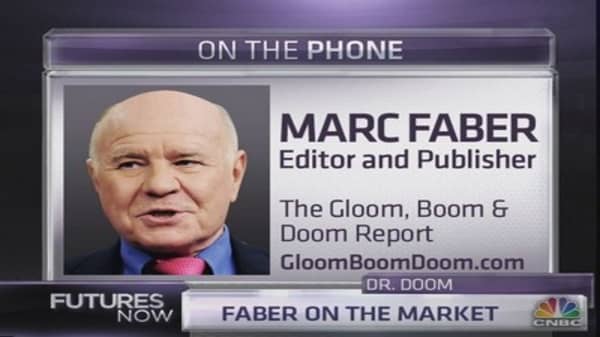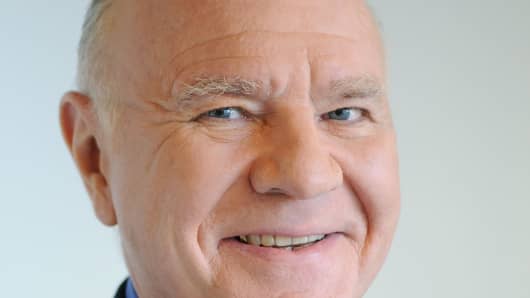If you want to hear a rosy view on the market, you'd better not listen to Marc Faber.
The editor and publisher of the Gloom, Boom & Doom Report has long held that a correction was coming—and even though that thesis has not exactly played out this year, he's standing by it.
"In my view, we'll go back to the lows in November 2012—around 1,343" in the S&P 500, Faber said. Overall, he considers U.S. equities a "better sell than a buy."
On Tuesday's "Futures Now," he provided three three main reasons for his bearish view.
Reason one: The U.S. will follow emerging markets down
It hasn't been an easy summer for emerging markets. In the period of a month and a half, the iShares MSCI Emerging Markets ETF (which tracks emerging markets' large- and mid-cap stocks) lost nearly 20 percent of its value and has hardly bounced back from the lows.
That has made the U.S. market an outperformer, but Faber believes it cannot last. In fact, he said, U.S. equities could be hurt by their relative costliness.
"When emerging markets go down and the S&P goes up, the asset allocators say, 'Do I want to buy the S&P near a high, or do I venture back into emerging economies that are down 50 percent from their highs, like India or Brazil and so forth?' So you understand that the pool of money can flow back into emerging markets," Faber said.















